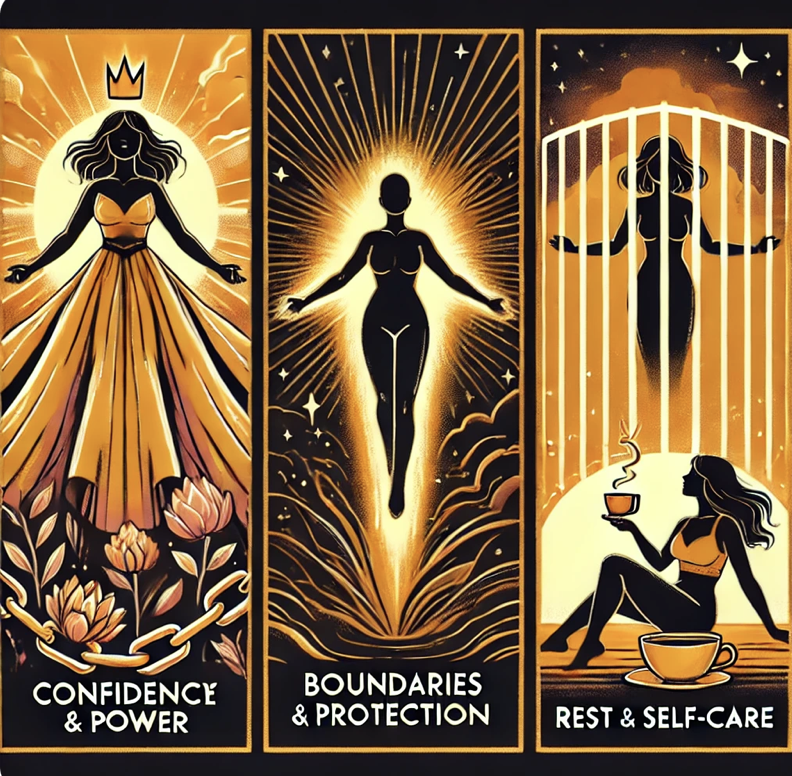Higher Vibes Coaching Blog

Read This if People Don’t “Hear” What You Have to Say
This is a practical guide for anyone tired of being talked over or ignored. It’s especially for you if anxiety, trauma, bullying, culture, or neurodivergence have minimized your voice. Here’s a step-by-step way to bring your voice back online—gently, clearly, and on your terms. These steps aren’t about being louder — they’re about feeling safe and confident enough that your voice doesn’t have to hide.

High, Numb, or Healing? Rethinking Your Relationship with Weed
Weed can soothe, silence, or support you — depending on how you use it. Learn the science, spot your patterns, and find harm-reduction tools that help you heal.

I Wore a Mamdani T-shirt. You’d Think I Set the House on Fire
When I posted a simple self-care video in a major coaching forum—wearing a Zohran Mamdani t-shirt, nothing political, just human—a “master coach” accused me of being unprofessional and turned it into a public takedown. The fallout says everything about who’s allowed to speak, who’s expected to stay silent, and why true psychological safety scares the people who preach it. This story was inspired by something that happened to me — a small, public moment that revealed so much about the world we’re living in.

Using Genograms To Understand Generational Trauma
“Just live with it” isn’t resilience—it’s survival passed down as strength. This article explores how generational trauma becomes identity, and how coaches can use genograms to trace emotional inheritance, unmet needs, and patterns of silence. By mapping family systems with empathy and boundaries, trauma-informed practitioners help clients replace endurance with connection, creating space for self-trust and intergenerational healing.

Before You Hire a Coach: How Their Background Shapes Your Care
Not all coaches are built the same. This guide unpacks how a coach’s background — HR, therapy, sales, or spirituality — shapes the care they offer. Learn how to spot performative empathy, evaluate training, and choose a trauma-informed coach who honors your nervous system and your boundaries.

Coaching’s Empathy Problem: How Performance Culture Hijacked Presence
Many coaches talk about empathy—but few embody it. This essay exposes how performative empathy, toxic positivity, and the pressure to “look caring” are re-traumatizing clients and burning out practitioners. Learn the neuroscience behind real attunement, how false empathy activates the brain’s pain pathways, and five embodied practices to rebuild authentic presence in your coaching work.

When People Police You: Their Reactions Say More About Them Than You
When people correct your tone, shrink your expression, or accuse you of being “too much,” it’s not about your behavior — it’s about their discomfort. This article explores the psychology of tone policing, projection, and envy in personal and professional spaces. Learn why people react defensively to authenticity, how silence enables control, and what it means to stand in your power without apologizing for it.

Beyond Sobriety: Recovery Coaching Tools that Work
Trauma-informed recovery coaching goes deeper than therapy—helping you understand emotions, unmet needs, and nervous system patterns. Using tools like the Feeling Wheel, Relational Needs, and attachment-based recovery frameworks, you’ll heal the root causes of addiction, perfectionism, and emotional disconnection.

The Heartache of “Passing”
Passing as white, straight, or able may look like a privilege, but it often feels like exile. Here’s an honest look at the science, strain, and healing of masking race, sexuality, and whatever your identity is.

Wayward and “Hot Seat” Therapy: Why These Methods Cause More Harm Than Healing
Confrontational counseling, attack therapy, and “hot seat” methods—like those dramatized in the Wayward series—are harmful, retraumatizing, and linked to poor recovery outcomes. Learn safer, trauma-informed alternatives.

ADHD and Eating Disorders Overlap — and How Recovery Coaching Can Help
ADHD and eating disorders often overlap. Learn how a trauma-informed recovery coach helps with binge eating, food struggles, and ADHD-friendly routines.

Recovery Coaching: How Two Sessions Can Transform Your Mindset and Self-Care
Looking for a food addiction recovery coach? Discover how just two sessions can transform your mindset, support food recovery, rewire patterns, and foster healthier self-care choices.

20 Things to Say to Bros To Take Your Power Back
Sometimes, you don’t want to debate a “bro”—you want to shut him down and keep it moving. Whether it’s at work, on a date, or just existing in the world, here’s how to shut that s**t down. And also, a lady can be a “bro” too…and that’s extra messed up!

It Sucks to Be Scapegoated for Telling the Truth
When you name what’s not working—at work or in your family—you’re often seen as the problem, even when you’re trying to create safety or help. This piece offers insight into why truth-telling can make people defensive and what it can cost to stay honest in systems built on silence.

When “You Got This Feels” Like a Slap
Tired of hearing “You got this!” when you’re barely hanging on? Here are 15 phrases that sound supportive—but can actually leave you feeling alone—and what to say instead to get the real help you need.

When Trauma Pulls You Back, You’re Still Moving Forward
Growth means facing past wounds with new awareness, not starting over. When trauma resurfaces, it’s proof of progress—showing you can respond differently. Here’s how to keep moving forward.

Sassy Quotes to Boost Confidence, Set Boundaries, and Own Your Energy
Confidence is your birthright. These unapologetic quotes will help you stand tall, enforce boundaries like a pro, fight through challenges with resilience, and prioritize rest without guilt—because your energy is priceless, and survival is an art form.

5 Signs It’s Not Psychologically Safe (and You Should GTFO)
Navigating social interactions in today’s politically charged climate can feel exhausting. Learn how to quickly recognize unsafe conversations, set boundaries, and decide when to engage—or walk away—to protect your psychological well-being.

Marisol’s Story: Choosing Herself in a World That Won’t Stop Questioning Her
Marisol, a recent college grad, struggles with modern dating pressures, cultural misunderstandings, and so-called progressive men who don’t respect her boundaries. They even went as far as to call her racist for wanting to date within her culture. Through coaching, she learns to trust herself, set firm limits, and embrace dating on her own terms. Read her story.

How Coaching Helped Arjun Break Free from Family Expectations
Arjun, a high-earning Indian tech executive, spent years seeking his parents’ approval—until coaching helped him break the cycle. At a high-stakes family dinner, he finally asserts his independence, proving success isn’t just about legacy—it’s about choice.